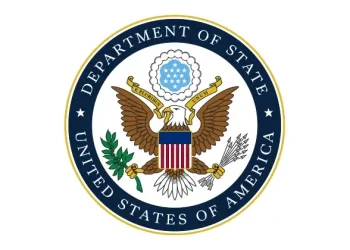U.S. Citizenship and Immigration Services (USCIS) has been granted federal law enforcement powers, marking a historic shift from adjudications to direct enforcement as part of President Trump’s immigration agenda.
USCIS Enters a New Era
The Department of Homeland Security (DHS) announced a final rule granting USCIS special agents authority to investigate, arrest, and prosecute individuals violating U.S. immigration laws.
The rule, effective 30 days from publication in the Federal Register, transforms USCIS from a purely administrative agency into an armed enforcement body.
The decision is framed by DHS as part of President Donald J. Trump’s broader promise to “make America safe again.” USCIS officers, now classified under the 1811 federal special agent designation, will have the same authority as other federal law enforcement officers.
Policy Details and Scope of Authority
Under the new rule, USCIS special agents can:
-
Make arrests and carry firearms.
-
Execute search and arrest warrants.
-
Investigate civil and criminal violations of immigration laws.
This authority enables USCIS to conduct investigations from start to finish rather than relying on referrals to Immigration and Customs Enforcement (ICE). Officials say the move will streamline enforcement and increase accountability.
Effect on Operations
Previously, USCIS’s role was largely limited to adjudicating applications for green cards, visas, and naturalization. Fraud or irregularities were often referred to ICE or other agencies. With the new rule, USCIS gains full investigative and prosecutorial power.
Applicants, law firms, and employers can expect increased scrutiny in everyday processes. Site visits, surprise audits, and expedited removals will become more frequent.
This is particularly relevant for employers sponsoring immigrant workers, who now face stricter compliance requirements.
National Security Rationale
According to a DHS spokesperson, empowering USCIS officers to act as law enforcement agents strengthens homeland security.
The spokesperson highlighted that these new authorities align USCIS with its missions of national security, fraud detection, and public safety.
Officials argue the change will deter fraudsters and speed up the removal of individuals who exploit the immigration system. They emphasize that USCIS can now act more efficiently, cutting backlogs and prosecuting cases without waiting for interagency referrals.
Operational Shifts in Day-to-Day Processes
Heightened Scrutiny for Applications
Green card, visa, and citizenship applications will undergo more rigorous vetting. Suspicious documentation or statements may trigger immediate investigations by armed agents.
Onsite Investigations
USCIS agents are now authorized to visit workplaces, homes, and community sites to verify information. These agents can make arrests on the spot if they uncover fraud or other violations.
Expedited Removals
The USCIS director now has authority to order expedited removals. This change accelerates enforcement compared to traditional referral systems, reducing timeframes for deportations.
Broader View and Comparisons
This expansion mirrors historic precedents where administrative agencies acquired enforcement powers. Agencies like the IRS and the Postal Service evolved to prosecute fraud internally, reducing reliance on outside law enforcement.
The shift also aligns with broader political momentum for tougher immigration controls. It complements recent restrictive measures, such as the narrowing of Temporary Protected Status programs.
Enforcements Table
| Area | New Impact |
|---|---|
| Applicants | Increased scrutiny of documents and faster risk of investigations during the application process |
| Employers | Stricter compliance checks and potential workplace site visits by armed USCIS agents |
| Legal Community | Faster case resolutions, heightened risk of prosecution for errors or misstatements |
| National Security | More direct fraud prevention and expedited removals of violators |
Risks and Concerns
Immigrant advocacy groups and civil liberties organizations have raised concerns over due process and potential mission creep. Critics warn that empowering USCIS agents with firearms and arrest powers blurs the line between adjudication and enforcement, potentially intimidating lawful applicants.
There are also warnings about increased risks for officers themselves. Expanded authority could make USCIS facilities and personnel targets for retaliation, particularly from cartels involved in human smuggling.
Likely Regional and Community Responses
Border communities such as Tucson may see heightened enforcement activity. Families and local advocacy groups could face additional stress as immigration cases are processed more aggressively.
Employers sponsoring immigrant workers will need to adopt stricter compliance strategies to withstand potential audits or onsite visits. Immigration attorneys will also need to prepare clients for quicker investigations and potential legal action.
How This Will Develop
USCIS has announced recruitment and training programs to expand its corps of special agents. The agency aims to build a workforce capable of carrying out armed enforcement while continuing to process benefits applications.
Officials stress that the expanded authority strengthens interagency collaboration. USCIS, ICE, and the FBI will coordinate on high-priority cases, particularly those tied to organized crime or fraud networks.
Wrapping Up
The expansion of USCIS authority represents a fundamental change in America’s immigration system. By embedding enforcement powers directly into the adjudication process, USCIS is reshaping how cases are reviewed, approved, or denied.
Sources: US Department of Homeland Security.
Prepared by Ivan Alexander Golden, Founder of THX News™, an independent news organization delivering timely insights from global official sources. Combines AI-analyzed research with human-edited accuracy and context.








